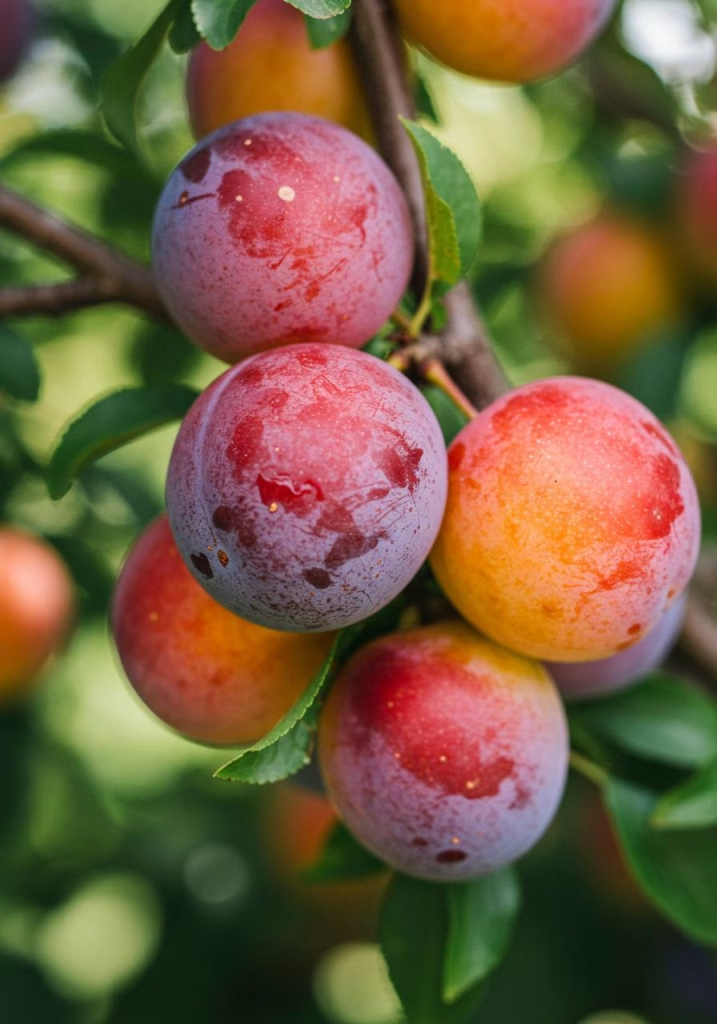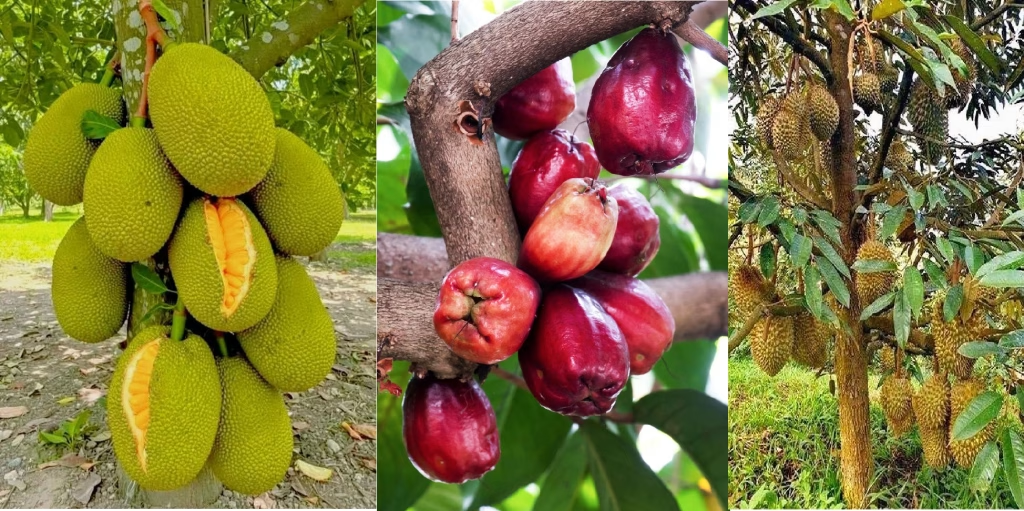
Fruits have been a cornerstone of human diets for thousands of years. From the ancient Greeks to indigenous tribes across continents, fruits have not only nourished the body but also symbolized health, prosperity, and even divinity. With the rise of modern science and nutrition, we now understand that the benefits of fruits go far beyond their delicious taste. They are nature’s nutrient-rich packages, bursting with vitamins, minerals, fiber, and antioxidants that support a wide range of bodily functions and protect against chronic diseases. In this article, we will explore the best benefits of fruits, diving into how they contribute to overall health, disease prevention, mental well-being, and longevity.
Thank you for reading this post, don't forget to subscribe!
1. Rich Source of Essential Nutrients
Fruits are packed with essential vitamins and minerals that the body needs to function optimally. These include:
- Vitamin C: Found abundantly in citrus fruits like oranges, lemons, and grapefruits, vitamin C supports immune function, aids in iron absorption, and contributes to healthy skin by boosting collagen production.
- Potassium: Bananas, oranges, and melons are excellent sources of potassium, which helps regulate blood pressure, fluid balance, and muscle contractions.
- Folate: Crucial for DNA synthesis and repair, folate is especially important for pregnant women and is found in fruits like oranges, papayas, and avocados.
- Vitamin A and Carotenoids: Mangoes, apricots, and cantaloupe are rich in beta-carotene, which the body converts to vitamin A for good vision, immune support, and cell growth.

2. High in Dietary Fiber
Fruits are an excellent source of dietary fiber, particularly soluble fiber, which has multiple health benefits:
- Digestive Health: Fiber adds bulk to the stool, making bowel movements more regular and preventing constipation.
- Cholesterol Reduction: Soluble fiber binds with cholesterol in the digestive system, helping to lower LDL (“bad”) cholesterol levels.
- Blood Sugar Control: Fiber slows the absorption of sugar, which helps regulate blood sugar levels and reduces the risk of type 2 diabetes.
- Weight Management: Foods high in fiber tend to be more filling, which helps control appetite and prevent overeating.
Apples, pears, berries, and prunes are especially known for their high fiber content.

3. Powerful Antioxidant Properties
Fruits are rich in antioxidants—natural compounds that fight oxidative stress and neutralize harmful free radicals in the body. Oxidative stress has been linked to chronic diseases such as cancer, heart disease, and Alzheimer’s.
- Flavonoids: Found in berries, grapes, and citrus fruits, flavonoids help reduce inflammation and improve heart health.
- Polyphenols: These compounds, found in apples, grapes, and cherries, have anti-inflammatory and anti-cancer properties.
- Vitamin E and C: Both act as antioxidants that protect cells from damage.
Berries, in particular, such as blueberries, strawberries, and blackberries, are considered antioxidant powerhouses.

4. Supports Immune Health
Fruits contribute significantly to a strong and responsive immune system. The vitamins, minerals, and antioxidants found in fruits help the body fend off infections and reduce inflammation.
- Citrus fruits: Rich in vitamin C, they stimulate the production of white blood cells, which are vital to fighting infections.
- Kiwi: Not only high in vitamin C but also vitamin K, vitamin E, and folate—all of which play roles in immune function.
- Pineapple: Contains bromelain, an enzyme that may help reduce inflammation and improve immune responses.
Including a variety of colorful fruits in the diet ensures a range of nutrients that collectively boost immune defenses.

5. Protects Heart Health
Cardiovascular disease remains one of the leading causes of death globally, but fruit consumption is consistently associated with a reduced risk of heart disease.
- Lower Blood Pressure: Fruits rich in potassium, like bananas and oranges, help counteract the effects of sodium and lower blood pressure.
- Improved Cholesterol Levels: Fiber-rich fruits help decrease LDL cholesterol while increasing HDL (“good”) cholesterol.
- Reduced Inflammation: Antioxidants and anti-inflammatory compounds in fruits improve arterial function and reduce the risk of atherosclerosis.
Studies have shown that diets high in fruits and vegetables can reduce the risk of heart disease by up to 30%.

6. Aids in Weight Management
Fruits are naturally low in calories and fat while being high in water and fiber—ideal traits for a weight-friendly food.
- Satiety and Fullness: Fiber and water content help you feel full longer, reducing the need for snacking or overeating.
- Natural Sweetness: Fruits satisfy sweet cravings without the added sugars found in processed snacks and desserts.
- Low Energy Density: You can consume a large volume of fruit with relatively few calories, making it easier to maintain a healthy weight.
Grapefruit, apples, and berries are especially helpful for those looking to manage or lose weight.

7. Improves Skin and Hair Health
Many fruits have nutrients that promote healthy skin and hair from the inside out.
- Vitamin C: Essential for collagen synthesis, which keeps skin firm and youthful.
- Antioxidants: Protect against sun damage and pollution-related aging.
- Water Content: Hydrating fruits like watermelon, cucumber (technically a fruit), and oranges contribute to skin hydration.
Avocados are rich in healthy fats and vitamin E, both known to nourish the skin and scalp.

8. Boosts Brain Function
Emerging research suggests that fruit consumption may support brain health and protect against cognitive decline.
- Berries: Especially blueberries and strawberries, have been linked to improved memory and slowed brain aging thanks to their high levels of flavonoids.
- Grapes: Contain resveratrol, which may enhance brain function and protect against Alzheimer’s disease.
- Citrus fruits: High in vitamin C and folate, both essential for neurotransmitter function and mental clarity.
Eating a fruit-rich diet is associated with lower rates of depression and anxiety, possibly due to improved gut health and reduced inflammation.
9. Hydration Support
Many fruits have high water content, making them excellent choices for staying hydrated:
- Watermelon: Composed of over 90% water and packed with electrolytes.
- Strawberries and cantaloupe: Also high in water and refreshing during hot weather or after physical activity.
Proper hydration is vital for every system in the body, including digestion, temperature regulation, and detoxification.

10. Disease Prevention and Longevity
Long-term studies have shown that people who consume fruits regularly tend to live longer and are less likely to develop chronic diseases.
- Cancer Prevention: The antioxidants, fiber, and phytochemicals in fruits can reduce the risk of certain cancers, especially those of the digestive tract.
- Type 2 Diabetes: Whole fruits, despite containing natural sugars, have a low glycemic index and can help improve insulin sensitivity.
- Age-related Diseases: Fruits combat inflammation and oxidative damage, both of which are linked to aging and related diseases.
A fruit-rich diet is a cornerstone of several proven longevity diets, including the Mediterranean and Okinawan diets.

How to Include More Fruits in Your Diet
If you’re looking to reap the full benefits of fruits, aim to consume 2 to 4 servings daily. Here are some tips:
- Breakfast: Add sliced bananas or berries to oatmeal or yogurt.
- Snacks: Keep apples, oranges, or grapes handy for a quick bite.
- Smoothies: Blend your favorite fruits with a bit of spinach or kale for a nutritious drink.
- Salads: Toss in mango, pomegranate seeds, or citrus slices for a burst of flavor.
- Desserts: Replace sugary treats with fruit salads or baked fruit with cinnamon.
Choose fresh, frozen, or dried fruits without added sugar, and eat whole fruits more often than fruit juices to maximize fiber intake.

Conclusion
Fruits are one of the most health-promoting foods available, offering a powerful combination of nutrients, fiber, antioxidants, and natural sweetness. Their benefits extend far beyond basic nutrition—they protect the heart, enhance brain function, improve digestion, and promote radiant skin and hair. Moreover, regular fruit consumption is linked with a reduced risk of chronic diseases and a longer, healthier life.
Incorporating a variety of fruits into your daily routine is an easy, enjoyable way to boost overall well-being. Whether you enjoy them fresh, blended, baked, or dried, fruits are a timeless, delicious way to nurture your body from the inside out.





